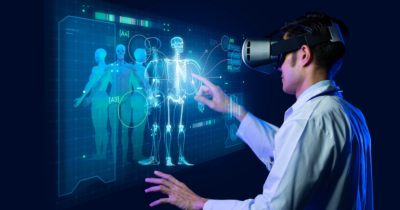Michio Kaku: AI Chatbots Are Not More Than Glorified Tape Recorders

Michio Kaku is currently the best-known physicist in the USA and perhaps even in the world. He owes this not only to his research on string theory but above all to his popular scientific appearances. Now Kaku has commented critically on chatbots.
Criticism of ChatGPT and Others
AI chatbots or so-called Large Language Models (LLM) are and will remain the topic of the hour and fascinate many people. Because ChatGPT and Bard deliver more and more precise results that sound as if a human had written the text. But there are always experts who are critical of this or are not quite as impressed by the current bots as the general public.
This also includes the well-known physicist Michio Kaku. The Californian physicist is a welcome guest in the media when it comes to explaining complex matter in a popular scientific manner. He follows the tradition of Carl Sagan, who managed to get the masses interested in astronomy and science in the 1980s.
Now, in an interview with CNN, Kaku has been critical of AI chatbots. Because according to the 76-year-old, ChatGPT. lead to media sensationalism that could overshadow forthcoming breakthroughs in the field of quantum computing.
While Kaku admitted that chatbots are efficient at generating content, ultimately they are too imprecise and cannot always distinguish reality from fiction. He described services like ChatGPT as “glorified tape recorders” that merely rearrange existing Internet content.
“(ChatGPT) takes snippets from the internet that were created by humans, stitches them together, and pretends it created those things itself,” Kaku said. “People say, ‘Oh my god, that’s a human, that’s human-like! But the chatbot just rearranges everything that’s already on the internet.’
Research Snipers is currently covering all technology news including Google, Apple, Android, Xiaomi, Huawei, Samsung News, and More. Research Snipers has decade of experience in breaking technology news, covering latest trends in tech news, and recent developments.












